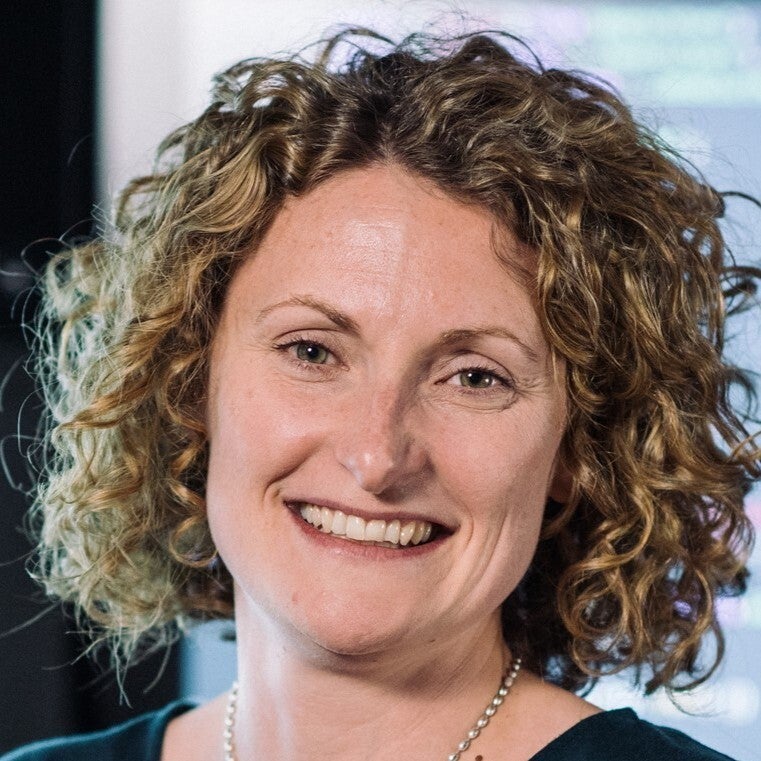
Kari Dempsey is the CTO of Vaarst, a company enabling businesses to harness the power of data and robotics in ocean applications and beyond.
In the latest Q&A in our CTO Talks series, Dempsey discusses where her interest in tech comes from, her biggest tech pet peeves and how innovative companies can fight climate change.

Tell us a little bit about yourself, tell us about your current role?
Kari Dempsey: I’m the recently appointed CTO of Vaarst, the very first CTO of Vaarst, in fact. Before coming to Vaarst I had spent about five years working at the UK Hydrographic Office which is one of the largest hydrographic offices in the world.
As the head of data science and deputy CTO, I was doing lots of the hands-on work building the data science and engineering functional areas up from scratch. Prior to the UK Hydrographic office, I worked as a technical consultant specialising in big data analytics systems for FTSE 100 companies.
Before then I did a variety of different things that have provided a great foundation for my work at Vaarst, including a PhD in Condensed Matter Physics, creating computer simulations to model car engines and creating IOT sensor systems. These roles shaped my expertise led me to Vaarst and I couldn’t be more excited about what the company has planned for the future.
Where did your interest in tech come from?
I have a great interest in understanding the world around me, I have also always enjoyed maths and logical problem solving. This curiosity and interest naturally took me to study maths, science and technology.
How well do you really know your competitors?
Access the most comprehensive Company Profiles on the market, powered by GlobalData. Save hours of research. Gain competitive edge.

Thank you!
Your download email will arrive shortly
Not ready to buy yet? Download a free sample
We are confident about the unique quality of our Company Profiles. However, we want you to make the most beneficial decision for your business, so we offer a free sample that you can download by submitting the below form
By GlobalDataThe technology landscape is constantly changing, and I think that’s why I’ve been drawn to the sector. I have – for a lack of a cringier cliché – a thirst for knowledge, and working in a sector that the demands you to continually keep up with the change marries with my desire to be constantly learning.
What one piece of advice would you offer to other CTOs?
Be kind. As well as being the right/nice thing to do, it is amazing how this pays you back many times over. Such a large part of the CTO role is being a people person and getting the best out of your team. In my experience, kindness is by far the most effective motivator.
I would also advise other CTOs to give meditation a go. I know how demanding our occupation is and it’s been of great help to me to take some time to slow things down to focus on what’s most important. You’ll be surprised how much it can help, especially with prioritisation and working positively with people.
What’s the most surprising thing about your job?
One thing that took me aback when doing these sorts of roles is just how varied the role is in terms of the scope of work. I can go from one meeting where I’m involved in conversations looking at our business through a macro lens and then into the next meeting to discuss how a very specific aspect of our technology works.
The volume of work I have to cover and levels of the company I have to deal at was quite a surprise at first, you don’t quite realise the breadth of the job. Whilst that seems like a challenge at first, it suits me, I get to work with lots of incredibly smart people within the business and no day is quite the same as another.
What’s the biggest technological challenge facing humanity?
Climate change is by far and away our greatest technological challenge. The sheer scale of the problem that we have got ourselves into cannot be overstated. At Vaarst we are providing solutions that are enabling the energy transition, but in order to combat climate change it will take so many technological changes across all sectors. It’s going to require everyone to do their bit, particularly large corporates.
Biggest tech pet peeve?
Mansplaining! The tech industry is disproportionately populated with men – especially in senior roles – and I am no stranger to the frustrations that occur when lazy assumptions are made about the women that are working in the field!
What’s the most overrated technology out there?
Technologies that suggest or claim that you can skip a lot of the hard work or work for any problem, such as Data Meshing, blockchain and AutoML – these things have their place, but they can be touted as being a fix for everything. If you take shortcuts or implement the wrong tool, you’re going to pay for it down the road.
What tech are you most excited about?
Autonomy and robotics are very interesting and, for me, it’s a very compelling area of tech, not simply because it’s new to me and I love a new challenge, but because of the potential the technology has to transform so many aspects of the way we live and work.
We’re applying this technology to the energy sector, helping us to transition meaningfully and cleanly to renewables by lowering the costs of subsea surveys. However, there are countless other use cases and applications across all industries that can dramatically improve on current systems and processes, and move us forward as businesses and society.
What’s the strangest thing you’ve ever done for fun?
For my 21st birthday, a couple of friends and I trekked up a mountain to a secluded restaurant and got stranded. Fully anticipating this, we had brought sledges up with us. Following a boozy meal, we tobogganed all the way back down the mountain in the pitch black. How nobody ended up hitting a tree I have no idea.
What’s the most important thing happening in your field and why?
The transition of autonomous robotics into functional use. Since remotely operated underwater vehicles (ROVs) were introduced into the offshore industry for the purpose of monitoring, maintenance, exploring and more, the technology has remained relatively analogue.
However, the development of autonomy and the successful integration with ROVs is completely changing the field. It’s reducing costs and emissions, and increasing the pace of work. It doesn’t just stop with ROVs, this technology can be retroactively applied to almost any robot, meaning we will start seeing this technology penetrate other use cases, verticals and geographies.
In another life, rather than Vaarst CTO, you’d be?
An academic researcher, probably in the field of quantum mechanics and magnetism, or an artist.







